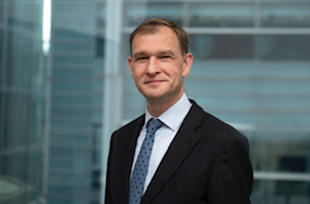ABOUT THE UNITED NATIONS ETHICS OFFICE

Director — Ethics Office, United Nations Secretariat
MEET THE DIRECTOR
Mr. Juraj Strasser, a national of Slovakia, is the Director (D-2) of the Ethics Office of the United Nations Secretariat. He took up his duties on 3 December 2024. He is accountable to the Secretary-General for the performance of his duties. As part of the role, he serves as the Chair of the Ethics Panel of the United Nations, which also includes the heads of the Ethics Offices of the separately administered organs and programmes of the United Nations
WHO WE ARE
The UN Ethics Office offers five lines of service:
- Confidential ethics advice
- Ethics awareness and education
- Protection against retaliation for reporting misconduct and for cooperating with duly authorized audits or investigations
- Financial disclosure programme
- Promotion of coherence and common ethics standards across the UN family
We provide the answers to questions that arise naturally from the work we do. Because of our varied cultures and norms, some of the answers may not seem so obvious, and we are here to help. Some of the more common questions we get are:
- May I accept this gift from a government official? To refuse would be an insult in my country.
- I already accepted a gift. What do I do now?
- Can I take a second, weekend job to earn some additional income?
- May my spouse work for the UN?
- How involved can I be in my country’s political scene?
- I have been asked to serve on the board of directors of an NGO that I support. Is that OK?
- How do I know what misconduct looks like?
- I might lose my job if I come forward. How can you protect me?
WHAT WE DON'T DO
- We do not receive reports of misconduct. Staff members have a duty to report suspected misconduct to the responsible officials (i.e. Head of Entity or OIOS.)
- We do not resolve grievances. Staff members are encouraged to seek the impartial and independent advice of the Ombudsman which may include mediation services or assistance from the Office of Staff Legal Assistance.
- We do not deal with administrative decisions regarding employment. Staff members wishing to contest an administrative decision must file a request with the Management Evaluation Unit in the Office of Under-Secretary-General for Management Strategy, Policy and Compliance.
WHY THE UN NEEDS AN ETHICS OFFICE
The UN must respond to public expectations. All public and private sector organizations face increasing scrutiny from citizens, shareholders and the news media. Given the explosion of new information and communication technologies, the rapid and global diffusion of ideas and practices, globalization, spreading democratization, and changing social values, the public expects greater accountability from the UN.
The nature of the UN’s work has changed. In today's complex and rapidly-evolving environment, we must often make decisions with only incomplete information. The UN employs a multi-cultural staff in duty stations in every region of the world, making uniform ethical practice more challenging. The UN’s ethical values and principles serve as a reliable guide and foundation to making tough decisions.
The UN is the guardian of several new international standards addressing accountability and transparency, such as the UN Convention Against Corruption and the UN Global Compact. As such, we should practise what we preach. We need to preserve and invest in one of our greatest assets: moral credibility. A reputation for honesty and integrity is indispensable to the work we do.
For questions or concerns, contact the UN Ethics Office
Helpline: available on iSeek or email:ethicsoffice@un.org
